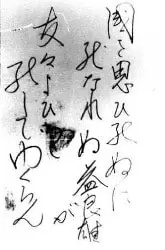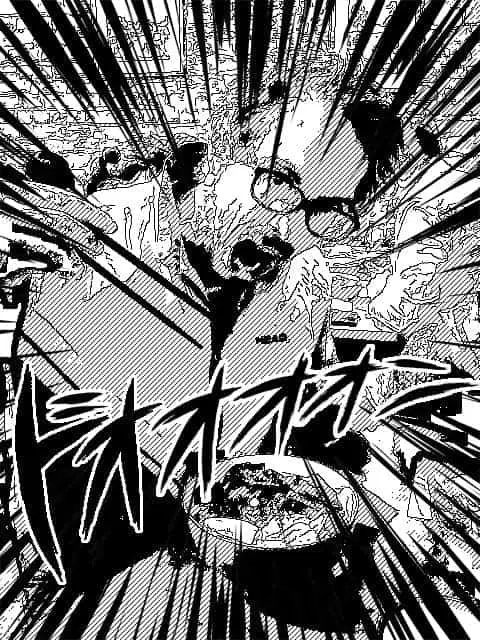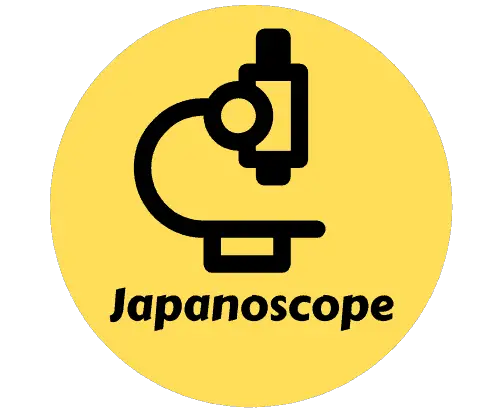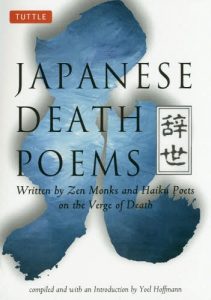Japanese Reading Difficulty
9/12 Could be read by 5th grade level student in Japan
Themes
Poetry, Death, Mortality, nature.
Text Type
Poem, Haiku
About Japanese Death Poems
Here is our second installment on Japanese death poems, this time we’re looking at a poem by Onitsura. These poems are messages from people writing on, or close to, their death beds.
I first came across these through a book Japanese death poems by Yoel Hoffman. I thought I’d try my own hand at some translations.

鬼貫
Oni-tsura
Died 2nd August 1738, aged 78
Today’s poem is by a Onitsura. Another great name. Oni, means demon. It can also be used as a shorthand term for great power, something like “super”. Tsura, also read as Kan, is a unit of measurement. In it’s Kun-reading it can be tsuranuku, meaning to pierce or penetrate. So was the name meant as “
夢返せ
からすのさます
霧の月
Yume kaese
Karasu no samasu
Kiri no tsuki
Give me back my dream
Misted moon
That wakes with the crow
Explanation of the poem
Here is the second in our series looking at Japanese Death Poems. Today, we’re looking at a poem by Onitsura. Onitsura died in 1738 at the age of 78.
Like all of the poets we are looking at, Onitsura has a great name. Oni means Demon. It can also mean “super”, in its supernatural sense. Tsura can mean piercing through, it was also a unit of measurement.
So I’m not sure exactly what that the sense of this is meant to be. Perhaps it is of a “piercing demon”. Or maybe Onitsura was meant to be somebody was “piercing the demon” or
“has a demonic power that’s piercing”. Or perhaps someone that has a measure of supernatural power. I’m not sure. Somebody might be able to comment on that and shed some light.
Onitsura’s deaths poem goes:
夢返せ
からすのさます
霧の月
Yume kaese
Karasu no samasu
Kiri no tsuki
I’ve translated that as:
Give me back my dream
Misted moon
That wakes with the crow
In the the Hoffman translation he says:
Give my dream back,
Raven! The moon you woke me to
Is misted over.
Language Analysis
夢返せ
夢 Yume means dream and 返せ is the imperative form of to “return something” or “give back”.
So this line is a demand “Give me my dream back!”
I think that’s a feeling that probably most people can identify with, that feeling of being asleep and then being rudely awakened. Indeed, we have the term “rudely awakened” in English talking about wanting to get back to some dream that you’ve been in. I think in this poem the “夢 Yume” has a has the dual meaning of the writer literally having been asleep at a moment close to death but also the idea that all of life is some kind of dream state, that you’re living out a story. I think of the line from the Edgar Allan Poe poem “all that we see or seem is but a dream within a dream. This is a persistent idea through art, that the world is somehow a dream, in and of itself.
The next line is
からすのさます
さます is to awaken. It is the transitive version of the intransitive to wake 覚める. So here someone is being woken up. We have a からす crow, or a raven, or a black black bird and the poem ends with 霧の月. I’m not a hundred percent clear whether the poet is being awoken by the cawing of the raven, or the cawing of the raven and the misty covered moon. Perhaps it is meant to be a combination of being awoken by that whole scene of a cawing raven and a mysterious moon and saying, “I just want to go back to sleep and get back to my dream, and maybe I want more time in my life to achieve the things that I wanted to achieve”. Apparently Onitsura did have some hardships as a poet, apparently, he was never given the standing or the title of a “Grand Master” poet. There is also some indication that he may have lived his poetic life somewhat in the shadow of the more famous Basho, who was 17 years his senior. Maybe he’s referring to the fact that he didn’t quite get to finish what he had started in his life.
An English Parallel
Now, to find a bit of a parallel in English, I’ve turned to the world of lyrics. As someone that’s very into songs and songwriting, I was thinking about how Bill Callahan often seems to talk about dream-like states. He has an amazing song called Eid Ma Clack Shaw, which is kind of a bit of gibberish verse.
The words go:
“I dreamed it was a dream that you were gone
I woke up feeling so ripped by reality
Love is the king of the beasts
And when it gets hungry it must kill to eat
Love is the king of the beasts
A lion walking down city streets
I fell back asleep some time later on
And I dreamed the perfect song
It held all the answers, like hands laid on
I woke halfway and scribbled it down
And in the morning what I wrote I read
It was hard to read at first but here’s what it said
Eid ma clack shaw
Zupoven del ba
Mertepy ven seinur
Cofally ragdah”
So, I think once again most people can identify with that idea of having a dream and feeling like you’ve had a major breakthrough, or you’ve had some kind of a revelation, that you figured something out and then you go to recall it, and it’s just on the tip of your tongue, but you just can’t. It’s unattainable. Anyway, there’s just a little parallel for you. We will continue to look at more of these Japanese Death Poems.
Japanese poetry books
Japanoscope is a registered affiliate with several online shops and may receive a commission when you click on some of the links within content.

Who is behind this site?
I’m Peter Joseph Head. I lived in Japan for four years as a student at Kyoto City University of the Arts and on working holiday. I have toured the country six times playing music and speak Japanese (JLPT N1).
ピータージョセフヘッドです。3年間京都市立芸大の大学院として、一年間ワーキングホリデーとして日本に住み、6回日本で音楽ツアーをし、日本語能力試験で1級を取得しました。要するに日本好きです。
Podcast: Play in new window | Download







